- The Galapagos Islands: paradise lost? - 29/11/2019
- Exploring the One Health Initiative in the Irish context - 02/11/2018
Last week, the Zoology department hosted the first Irish One Health workshop, welcoming speakers and attendees from a range of disciplines. This gathering provided an opportunity to discuss the One Health initiative, which aims to solve world health problems through transdisciplinary collaboration, through a series of short presentations discussing various aspects of global health, and ample time for discussion between attendees, including representatives from the DAFM, EPA, HSE and AFBI.
Our own Dr Peter Stuart, who organised this workshop, gave a fascinating introduction to the concept of One Health, using the example of Hookworm in the American South during the 20th century as proof that we need to work collaboratively to solve current health issues.
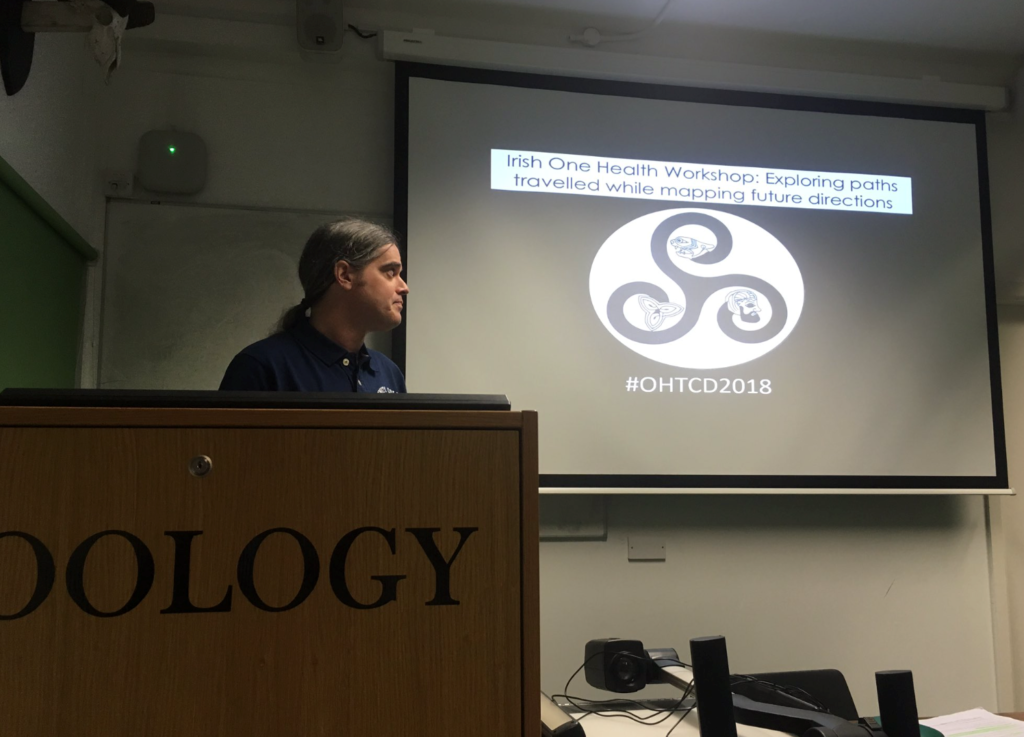 Photo credit: @Horse_Techie
Photo credit: @Horse_Techie
Up next, Dr Paddy Sleeman of UCC discussed Ireland’s health history, arguing that in order to effectively respond to current health threats, we need to understand our past. Among the examples he discussed was the threat of bovine tuberculosis in Ireland, and the current efforts to vaccinate badgers in order to stem the flow of disease. As Dr Sleeman put it, once vaccinated, badgers turn into goodgers!
Next to speak was Dr Dearbhaile Morris for NUI Galway, who presented her work on the AREST (antimicrobial resistance and the environment) project, which aims to identify the various sources of antimicrobial resistant in the environment. Doing so will require a One Health approach, with contributions from experts in human health, soil biology and animal health, to name a few.
Following this was Prof Samuel McConkey from RCSI, who presented the human disease perspective on One Health. He introduced the concept of disability-adjusted life years lost, a way to measure the impact of infectious and non-infectious health diseases worldwide. The top cause of years of life lost varies according to variables such as age and location, and is presented in an interactive square pie chart here.
Dr Karen Loxton of UCC was up next, presenting her work on the spread of invasive mosquitoes through Europe and their potential impacts for human health. Though malaria was eradicated in Europe in the 1970s, there has been a recent re-emergence due to increased globalisation providing more opportunities for the disease to be introduced. However, Dr Loxton warned against sensationalist and fear-mongering headlines, for example, a news article published in May 2018 declared that Tiger Mosquitoes carrying disease had arrived in Britain, but no such mosquitoes have been reported since.
Next to speak was Prof Grace Mulcahy from UCD, who discussed how animal diseases can be used as a model for human diseases. She presented the Old Friends Hypothesis (or Hygiene Hypothesis), which postulates that the rise in inflammatory and autoimmune diseases in developed countries is due to a reduction in helminths in individuals in these areas. Prof Mulcahy presented this hypothesis from an animal context, discussing evidence that over-worming horses can temporarily increase inflammation in the gut.
Dr Barry McMahon from UCD argued that the environment and biodiversity are at the core of the One Health Initiative. He discussed the importance of finding a balance between agriculture and biodiversity, given how losses in biodiversity linked to intensification of agriculture may cause disease outbreaks.
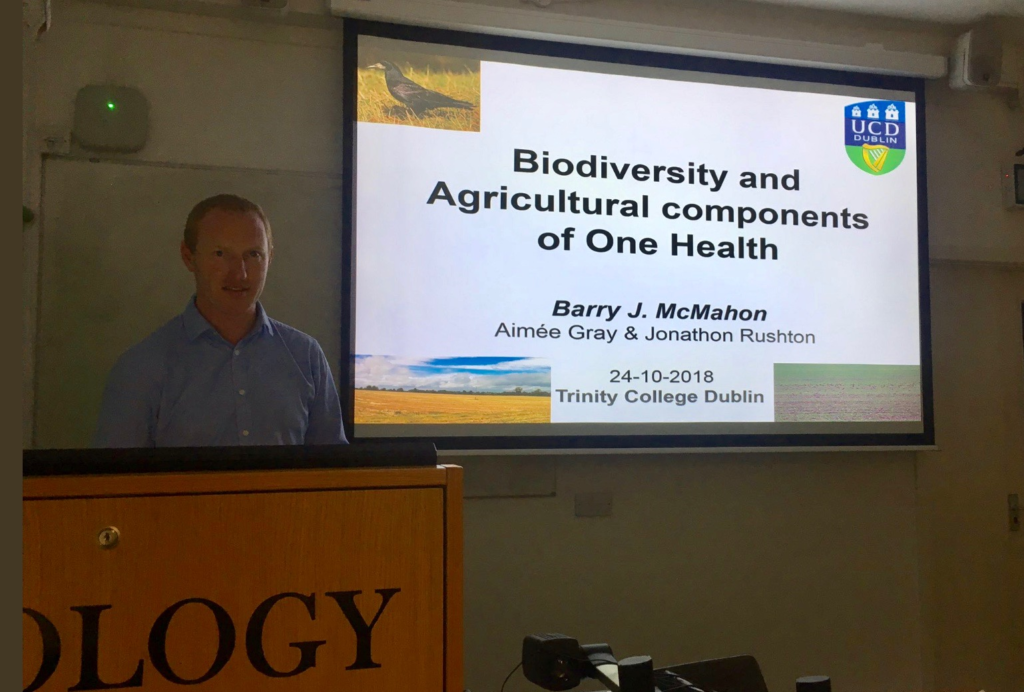 Photo credit: @Horse_Techie
Photo credit: @Horse_Techie
Prof Eric Morgan of QUB kicked off the afternoon session with his presentation on the trials and tribulations of Saiga Antelopes in Kazakhstan. These antelopes suffered a mass mortality event in 2015 when their population decreased 8-fold, and a team of experts from a range of disciplines was formed to investigate what caused this massive die-off. It is now thought that changes in climatic conditions caused this mortality event, which is concerning given the continued acceleration of global change.
Next to take the floor was Dr Patrick Bresnihan from TCD, who discussed the political framework of water and health. After discussing the outbreaks of Cryptosporidium in Ireland and their impacts, Dr Bresnihan presented the concept of group water schemes and their contribution to improving the protection of source waters.
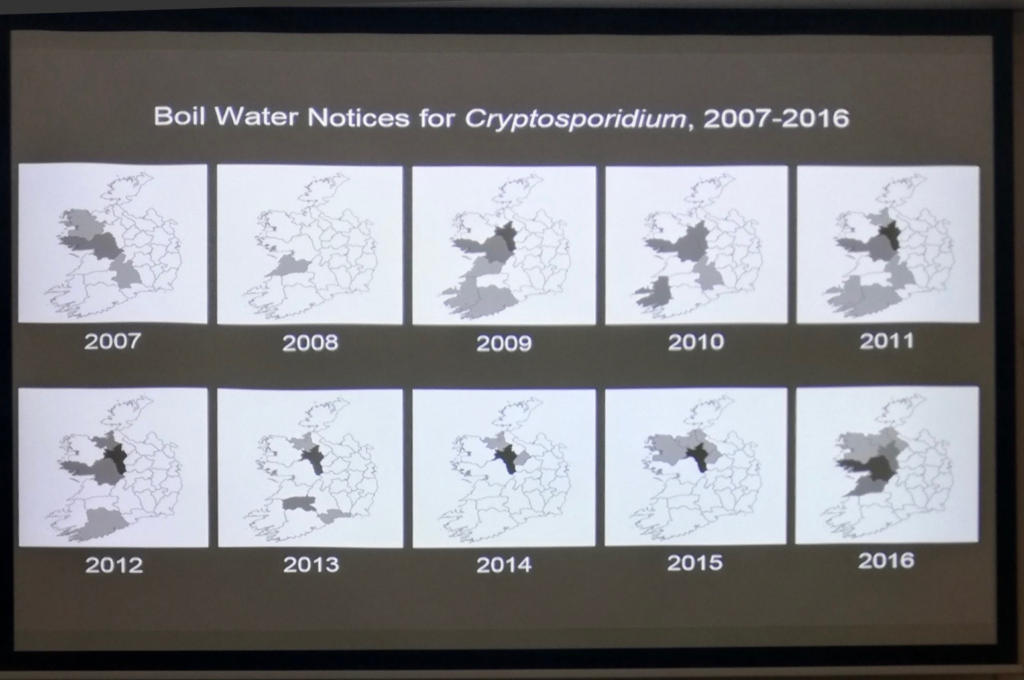 Photo credit: @MoDubs11
Photo credit: @MoDubs11
Karin Dubsky was next to present, discussing the dangers of marine litter to public health. Plastic pollution is causing serious damage to animal health, with marine animals and birds consuming large amounts of plastics such as polystyrene. There is a need for more efficient monitoring of coastal pollution, something which can be achieved by Coastwatch’s surveys.
The final presentation of the day was given by Dr Michelle Giltrap from DIT, who discussed her work on the BLUESHELL project. This project is exploring shellfish waste in search of bioactive compounds, which could have applications in chemotherapeutics and drug delivery. Discovering these compounds would offer a chance to use our shellfish waste in a productive way, therefore improving our environment which will improve human health.
This first meeting discussing One Health in Ireland was a positive step in getting this movement to be more visible to the general public in Ireland. The wide variety of expertise among presenters and participants allowed attendees to see the problems facing Ireland from multiple points of view. At the conclusion of the workshop, further meetings were discussed as was the idea of forming an Irish One Health network.
How can we ride this wave of enthusiasm at #ohtcd2018? pic.twitter.com/mNUWq0kY3B
— Maureen Williams (@MoDubs11) October 24, 2018
Many thanks to Dr Peter Stuart, Prof Celia Holland, Dr Annetta Zintl and Gwendoline Deslyper for organising this workshop, and thanks to all the speakers mentioned above.
For more tweets from the day, check out #ohtcd2018 on Twitter.

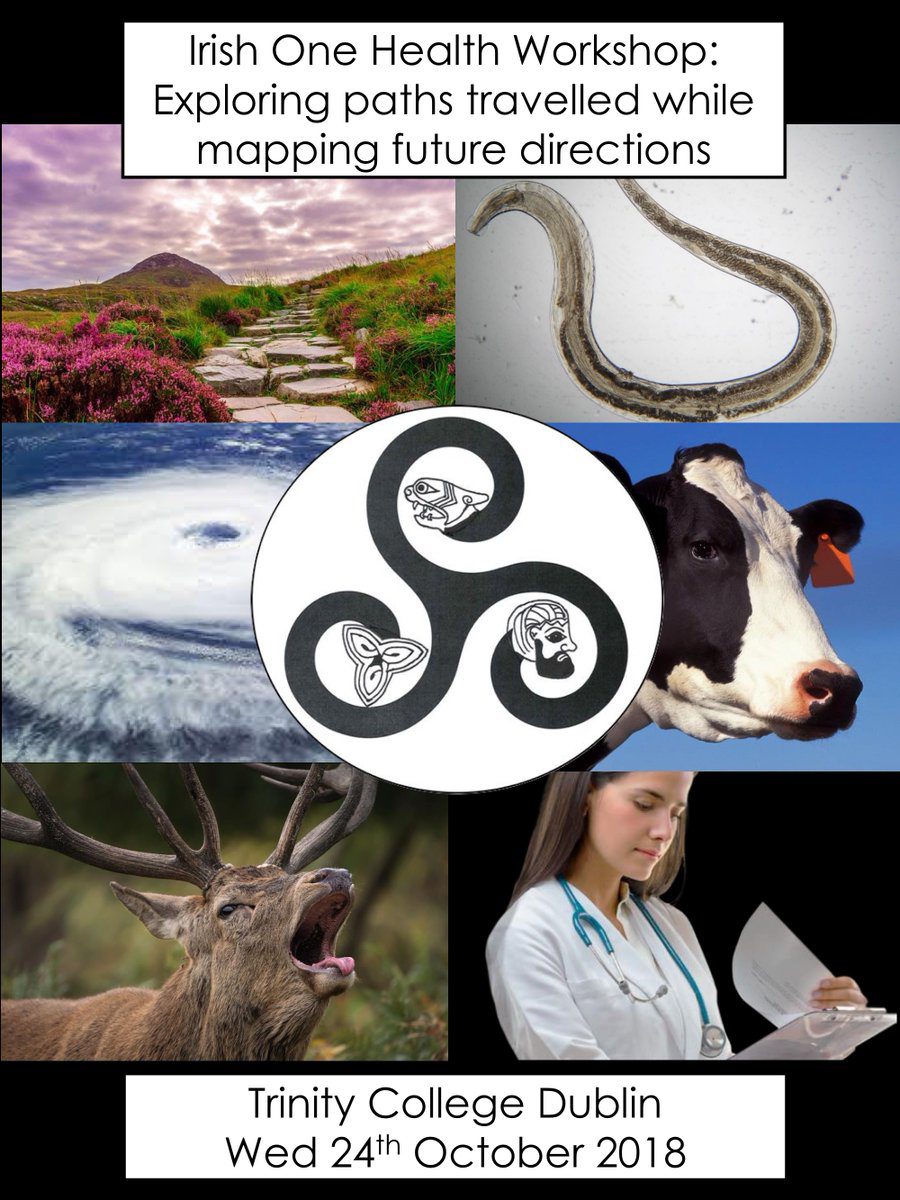
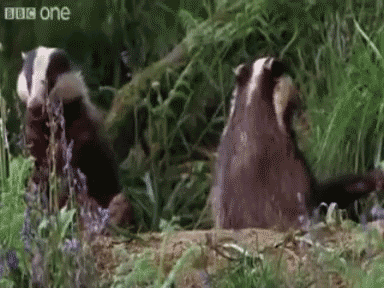
That shoul be have good advantage